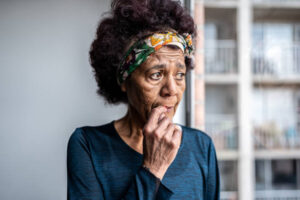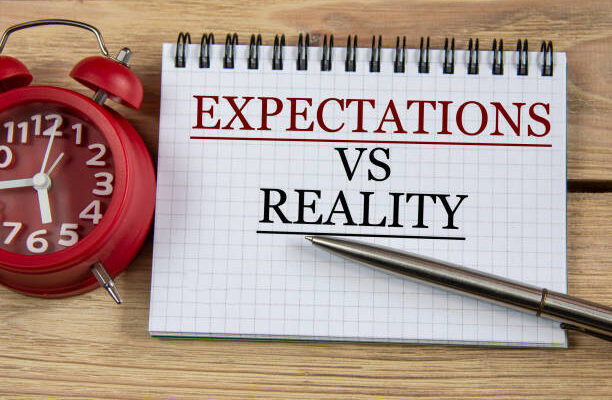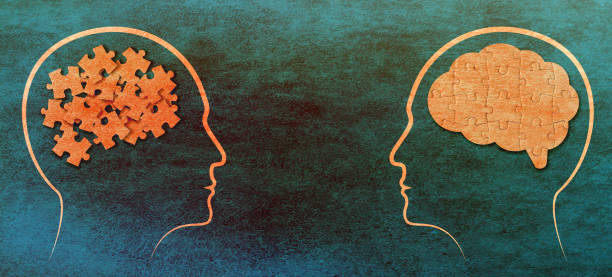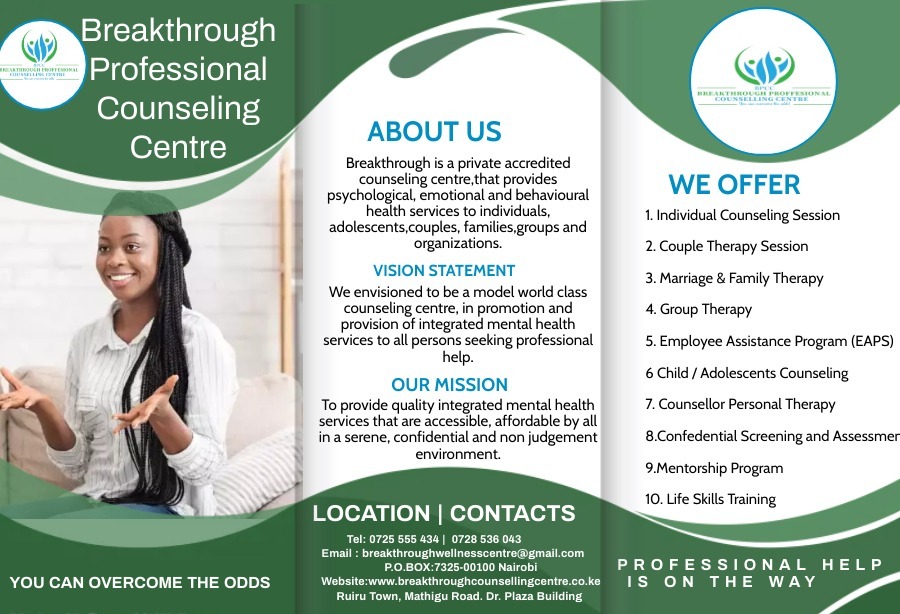What Is Vicarious Trauma?

Do you feel anxious, tense, or scared of something due to a story you heard/read, something you watched, or someone else’s experience? These are effects of vicarious trauma.
Ever listened to a story of a traumatic incident and you find yourself carrying fear, vulnerability, and emotional disturbance that affects your life in general?
Have you watched or heard a heartbreak story, and the thought of going through the same makes you so anxious that you’d prefer not to involve yourself in a relationship in the first place? Vicarious trauma can be a thief of joy and healthy living.
WHAT IS VICARIOUS TRAUMA
Vicarious trauma is the emotional remain/residue you get from exposure to traumatic experiences and stories from other people. It is baggage that you carry because you care for others. One effect of vicarious trauma is compassion fatigue.
Compassion fatigue is emotional exhaustion when dealing with other people’s issues due to exposure to trauma, thus resulting in a lack of empathy, feeling helpless, numbness, and even burnout. In essence, you get tired when you need to be compassionate.
WHOM DOES IT AFFECT?
Vicarious trauma comes from prolonged exposure to secondary traumatic stress. Secondary trauma can affect anyone; however, it is prevalent in certain professions due to continuous exposure to traumatic stories, experiences, and situations, becoming vicarious.
PSYCHOTHERAPISTS AND COUNSELORS

Photo: Istock photos
It is common for therapists to experience this kind of trauma. Long-term exposure to traumatic stories and your client’s experiences can scar you. Counseling is an emotional investment into your client’s world. As much as counselors are professionals, they invest emotions in dealing with clients.
As a result, your counselor can empathize with you. Achieving a balance between empathy, being understanding, unconditional positive regard, and putting too much emotion into the client’s world that it starts affecting you is paramount.
Psychotherapists dealing with victims of trauma, for example, sexual abuse cases, child abuse, domestic violence, terrorist attacks, post-election violence, religious cultism (shakahola case), prison inmates, and fatal accidents on road, air, or water experience firsthand effects of vicarious trauma.
HEALTH CARE PROFESSIONALS

Photo: Getty Images
Doctors, nurses, cleaning personnel, morticians, and other hospital workers could easily fall prey to this trauma. Prolonged exposure to physical ailments and suffering, pain, grief, death, injuries, permanent deformations, loss of body parts, and some unexplainable or unfathomable diseases and illnesses can cause compassion fatigue.
It brings about numbness or fear of making some choices or doing things. For instance, a nurse working in an emergency room, who is the first point of contact in case of a road accident, can develop a fear of using means of transport like motorbikes, cars, or airplanes.
Another instance is doctors/healthcare professionals dealing with Covid-19 cases daily. As the number of ICU cases and deaths kept increasing by the day, some left the facilities numb, in despair, and emotionally unstable they didn’t want to go to work anymore.
Such situations result from the stories of what happened, what you see the loved ones go through as they care for their family, and the pain the patients go through, bringing about secondary trauma. Due to multiple and prolonged exposure, it escalates to vicarious.
MEDIA PERSONALITIES AND JOURNALISTS

Image: Istock Photos
Reporters/journalists that cover stories daily; could fall victim to this kind of trauma. Over time, you listen to people, watch videos, and spend time in hardship areas to give the public untold stories.
For example, the journalists, camera crew, editors, and the team covering the shakahola case of religious cultism may become cynical of religious affiliation or involvement. Listening to those stories, watching families of the affected narrate how the loved ones withdrew, and witnessing extreme cases firsthand can lead to a loss of faith in humanity.
FIRST RESPONDERS

Source: Getty Images
First responders include law enforcement officers, the army, firefighters, medical personnel, and any other personnel called upon in the case of an emergency. For example, Post-election Violence, terror attacks, and fire have to deal with witnessing other people’s pain.
In other cases, people like detectives follow up on stories on what led to some choices and behaviors. Although this may look like someone’s job, it still affects you. Some of these stories can change how you perceive the world in general.
PEOPLE IN HARDSHIP AREAS

Photo: Istock Photos
People living or working in some hardship areas like refugee camps, prisons, drought-stricken areas, slums, and areas with high levels of insecurity. Other people’s experiences in such areas could affect your sleeping patterns, bring about fear and anxiety, etc.
GENERAL POPULATION
Technology has made the world a global village. The internet is a great agent when it comes to business; it has made things so much easier. With all that said, it has its downsides too. One of them is knowing the affairs of other countries and people worldwide.
You access so much on the internet. Though you may not watch what is on mainstream media, you access even more content on the internet. When there is a problem, everyone wants to document/share, and others even mock those that do something to help with the situation.
Trending videos and photos of people severely hurt, committing crimes, and hurting others, can change our view of other humans, instill fear, cause nightmares or dreams, depression, etc. All these are effects of vicarious trauma. You feel so bad for so many people that it brings about helplessness due to compassion fatigue.
Statistics show that this is the most informed generation there has ever been, meaning that you are carrying the weight of the suffering of a different country just because you know about it. Therefore you should be very conscious and cautious of the information you interact with daily to curb vicarious trauma.
Where do you categorize yourself here? Share in the comments.
HOW DOES IT MANIFEST?

Source: Istock Photos
- Anxiety and Fear – You find yourself uncertain and fearful about your life, situations, relationships, and things around you.
- Loss of joy in daily activities – You enjoyed conversing with people, but now you don’t. In addition, you claim that you don’t like hanging out with others or going outside the house, but in the real sense, you are just scared of what the world has become. You may be dealing with vicarious trauma, and not that you don’t enjoy some things anymore.
- Insomnia/ Oversleeping
- Affects your job performance – It becomes difficult to produce to your highest potential when you are unmotivated, tired, and not even sleeping well.
- Substance abuse – You can use drugs as a coping mechanism.
- Anger outburst – You become easily irritable.
- Numbness – You feel nothing, like a machine. You go to work, do your job and leave. No fulfillment, no purpose. You are just there.
Have you experienced any of these things?
EFFECTS OF VICARIOUS TRAUMA
- Lacking empathy
- Dreaming about the stories and experiences – Nightmares
- Withdrawal – Pulling back from people, activities, and work. You may be somewhere physically but not present mentally or emotionally.
- Change in worldview – Your perspective of people completely changes. All you think of is how terrible everyone is, how they want to use/take advantage of you, how evil humanity is, loss of faith. Vicarious trauma can completely change how you perceive things.

Source: Istock Photos
- Countertransference is the transfer of the therapist’s thoughts, experiences, values, and feelings toward the client, potentially impacting the therapeutic relationship and professionalism.
For instance, a client could look/behave like a villain you saw in a story you watched. Due to your negative emotions toward the perpetrator, you treat your client like that person and cannot handle the client professionally.
HOW TO CONQUER VICARIOUS TRAUMA
- Counselors chain
I call it a counselor’s chain though I don’t know what other professionals call it. Each counselor needs to have a counselor too. Undoubtedly this allows you to share and deal with your issues as you walk with others dealing with theirs.
A counselor receiving counseling pours from a filled cup. As a counselor, do you have an outlet too?
A counselor also needs a peer group of fellow counselors you walk with. Having a group that understands your work-based challenges is a form of professional self-care.
Counselors also need counseling supervision too. It allows you to open up as a group, be mentored, share, and practice under a more seasoned counselor in your field, thus enabling you to give the best to your client as you receive the best too.

Photo: Istock Photos
- Limit your consumption of triggers and certain content
You are responsible for what you consume. The saying goes, “GiGo” (Garbage In, Garbage Out). The more you expose yourself to a certain kind of content, the more effect it has on you and the more you’ll need to process.
For the professionals that have to deal with this in your line of work, please seek therapy or an outlet that allows you to decompress and lighten the load as much as you can.

Photo: Getty Images
- Compartmentalization
Know that some things are other people’s stories, not yours. Carrying the emotional weight of other people’s stories can increase compassion fatigue, so learn to let go of things that aren’t yours.
To sum up, self-awareness is paramount in this journey. To curb the effects of vicarious trauma, you need to know what you can handle; and if you are emotionally capable of dealing with trauma. If you are not, let go of information that isn’t serving you.
If you must deal with the stories and issues at work, actively look for an outlet. Get help from another professional to walk it out with you so it doesn’t affect your life forever.
You can overcome the odds. Help is on the way.
Should you seek therapy when you experience illnesses with no medical explanation?
Writer,
Sheila K. Muli
Counselor, Speaker, and Trainer









